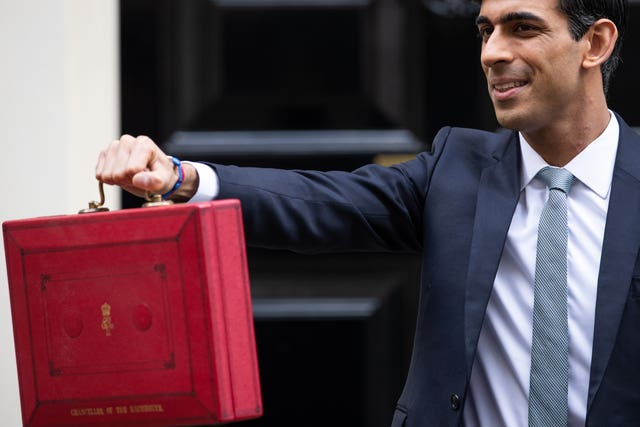Chancellor confirms plans to abandon corporation tax drop
Rishi Sunak had been widely expected to scrap the reduction from 19% to 17%, which was meant to come into force next month.

Chancellor Rishi Sunak has scrapped a planned cut in corporation tax, as he raised cash to make ends meet in his first Budget in charge.
Mr Sunak, who took over from Sajid Javid a month ago, is expected to raise around £6 billion from scrapping a planned drop, money he indicated could be spent on hospitals and doctors across the country.
“Business benefits from our NHS.
“So, as promised in our manifesto, the corporation tax rate will not be cut this year, but will remain at 19%, still the lowest rate in the G20.”

Mr Sunak had been widely expected to scrap the promised cuts in corporation tax, but some experts had thought he might keep it as a short-term measure.
The cut was meant to come in this April, however the move to scrap the drop was already floated last year.
Prime Minister Boris Johnson last year told business leaders that the charge would not drop to 17%, allowing the Government to free up money for the NHS.
Separately the Treasury will push ahead with a 2% tax on the revenues of digital technology giants, such as Google and Facebook, from the beginning of next month. The new charges, which were announced in 2018, will be paid annually by the businesses.
“The Government will continue to give consideration to how the legislation applies to marketplace delivery fees and whether that application is consistent with the policy rationale of the digital services tax,” the Treasury said.
All limited companies are charged 19% on their annual profits, a rate that was set in April 2016.
Trade and housing associations and members’ clubs can also be charged corporation tax.
Chris Sanger, EY head of tax policy, said: “Many may be disappointed that the Chancellor hasn’t let the rate cut go forward for at least one year, given the challenges that will be faced in 2020/21 by businesses, be that from Covid-19, Brexit, oil price fluctuations or indeed share price fluctuations.”





